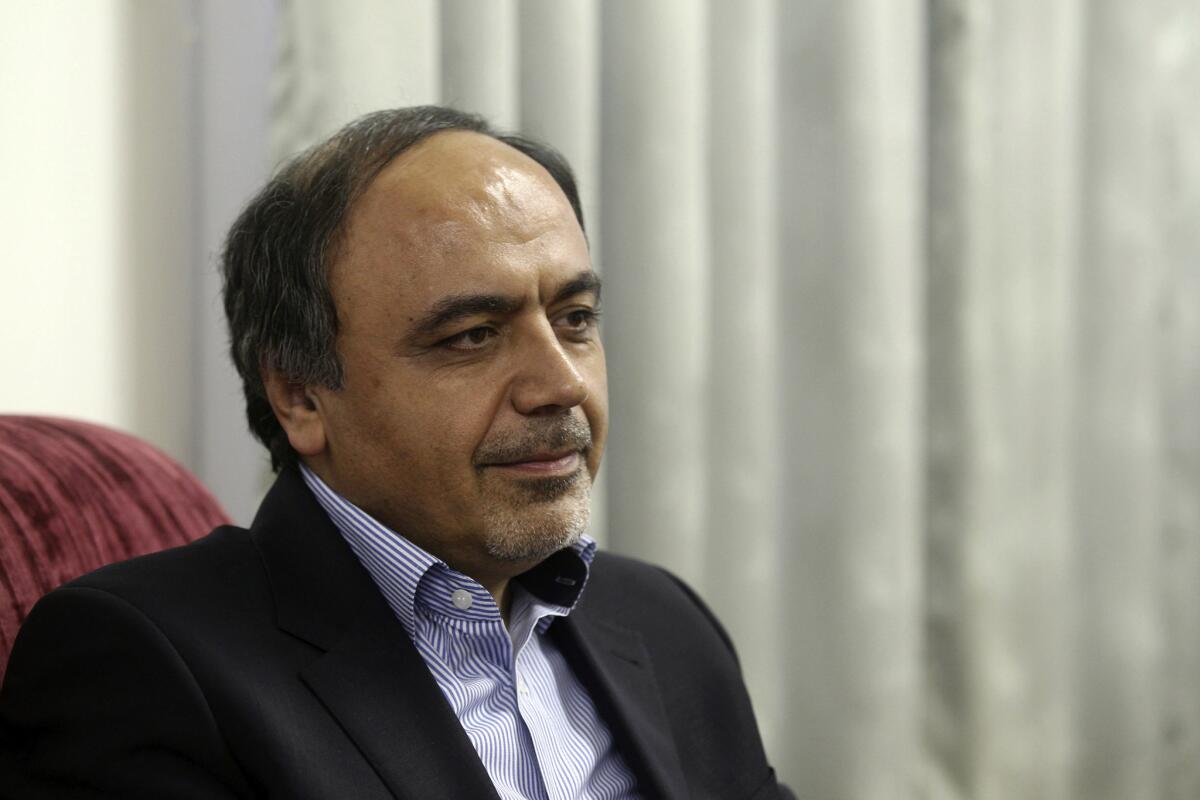Obama blocks visa for Iran’s U.N. ambassador

- Share via
WASHINGTON — President Obama signed into law a bill Friday that will block Iran’s new ambassador to the United Nations from entering the United States.
The measure is the first substantial bill from Texas Sen. Ted Cruz, a likely Republican presidential hopeful, to become law. It says the president can deny admission to any diplomat who “has been engaged in terrorist activity against the United States or its allies and may pose a threat to U.S. national security interests.”
The bill is aimed at barring the entry of Hamid Aboutalebi, a veteran Iranian envoy who has acknowledged that he served as a part-time translator for Iranian militants during the 1979 U.S. Embassy crisis in Tehran.
Aboutalebi is Iran’s choice to serve at U.N. headquarters in New York. Cruz, a tea party favorite who rarely has a good word for Obama, praised him Friday.
“Thank you, President Obama, for joining a unanimous Congress and signing S. 2195 into law today,” he said in a statement. “We have shown the world that when confronted with virulent anti-Americanism, we can stand together in defense of our national security.”
Aboutalebi, 56, has been described as a liberal, pragmatic diplomat aligned with President Hassan Rouhani’s campaign to improve Iran’s ties to the West. He has served at diplomatic posts in Australia, Italy and Belgium.
Tehran has denounced the U.S. move to keep out its designated envoy. Aboutalebi has said he played no role in planning or launching the storming of the embassy, nor the holding of 52 American hostages for 444 days.
Obama signed the bill a day after the U.N. nuclear watchdog, the International Atomic Energy Agency, declared that Iran was meeting its commitments under a landmark nuclear pact signed Nov. 24.
Since then, the IAEA said, Iran has diluted half its higher-grade enriched uranium reserves to a content that is less usable for weapons.
In response, the Treasury Department moved to release a $450-million installment in Iranian funds that were frozen under sanctions.
State Department spokeswoman Marie Harf said that “all sides have kept the commitments made” under the nuclear deal and that the United States, France, Germany, Britain, China, Russia and the European Union “will continue to uphold our commitments as well.”
When Congress passed Cruz’s bill by unanimous consent last week, the White House said government lawyers weren’t sure if it would pass judicial muster because of America’s commitments as the host nation to the U.N.
Obama thus added a caveat when he signed the bill. He said he would treat the language regarding diplomats as “advisory” because presidents have the constitutional authority to receive U.N. ambassadors, something President George H.W. Bush had noted in 1990.
“Acts of espionage and terrorism against the United States and our allies are unquestionably problems of the utmost gravity, and I share the Congress’ concern that individuals who have engaged in such activity may use the cover of diplomacy to gain access to our nation,” Obama said in the statement. “Nevertheless, as President Bush also observed, ‘curtailing by statute my constitutional discretion to receive or reject ambassadors is neither a permissible nor a practical solution.’ ”
Twitter: @KenDilanianLAT
More to Read
Sign up for Essential California
The most important California stories and recommendations in your inbox every morning.
You may occasionally receive promotional content from the Los Angeles Times.











